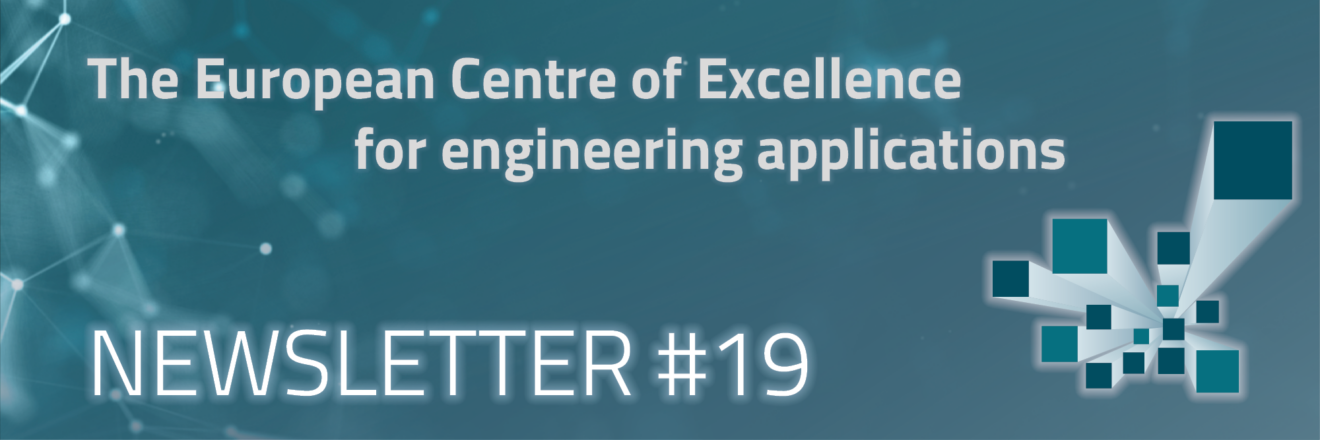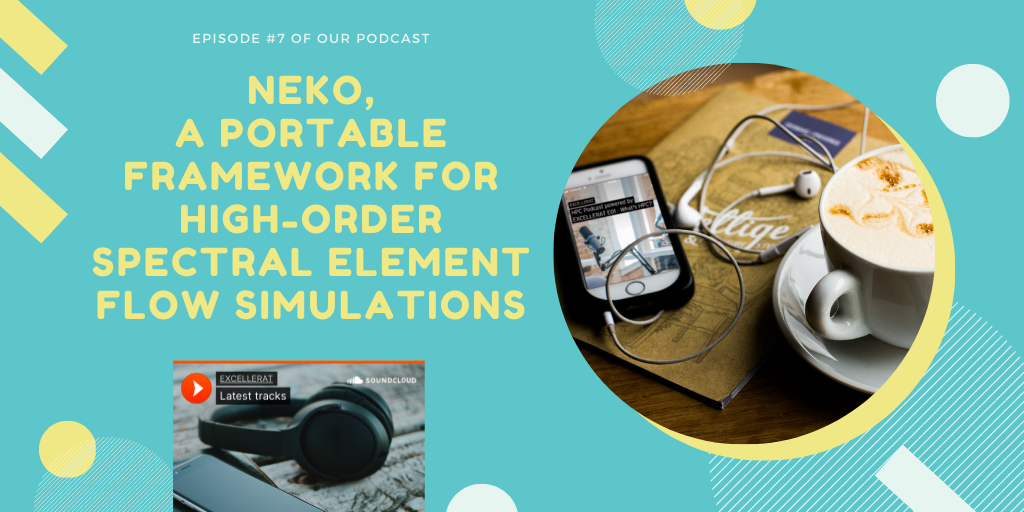|
|
|
|

|
Content
|
2. Podcast: Neko, a portable framework for high-order spectral element flow simulations
|
3. Blog article: HPC for Industry - an overview of the European landscape
|
|
4. Blog article: Transforming Engineering with AI and HPC
|
|
|
|
|
|
1. Welcome
|
Welcome to the January 2024 issue of the EXCELLERAT newsletter. In the second year of EXCELLERAT P2, while preparing our first project review meeting, we're excited to share news from our Centre of Excellence. Beyond recent blog articles and an upcoming training event, you can learn more about our core code Neko, a portable framework for high-order spectral element flow simulations in our latest podcast episode.
|
Stay tuned for more newsletters to come in 2024!
|
|
EXCELLERAT P2 Project Coordinator
|
|
|
|
2. Podcast: Neko, a portable framework for high-order spectral element flow simulations
|

|
|
The seventh episode of our HPC podcast puts a spotlight on Niclas Jansson from our partner institution the KTH Royal Institute of Technology in Stockholm. Niclas was nominated as a finalist for the prestigious Gordon Bell Prize, for leading the development of Neko, a high-fidelity spectral-element code. This code is instrumental to conducting unprecedented large-scale direct numerical simulations of fully developed turbulence while maintaining high-performance portability on GPU-accelerated platforms. In this episode, he explains the work undertaken and talks about the overall experience as a nominee. Listen to it now on Spotify.
|
|
3. Blog article: HPC for Industry
|
|
Industry holds a vital position within the economic framework of the European Union, contributing significantly to its prosperity and progress. In a recent blog article we provide an overview of the pivotal role of HPC in enhancing the competitiveness of industry, especially SMEs, across sectors.
|
|
4. Blog article: Transforming Engineering with AI and HPC
|
|
In today’s rapidly evolving research and engineering landscape, the convergence of artificial intelligence and HPC has become a transformative force. The synergy of AI and HPC is reshaping industries such as manufacturing, automotive, energy, aerospace, and climate research. From designing smarter vehicles to enabling sustainable energy sources and improving aerospace precision, AI and HPC are making engineering smarter, safer, and more sustainable. In a recent blog post, we provide some insight on applications of AI and HPC in some engineering sectors including our own EXCELLERAT approaches.
|
|
|
|
5. Further news & events
|
|
Training Course: From Machine Learning to Deep Learning - A concise introduction
|
This HLRS course offers an introduction to Machine and Deep Learning for students, data scientists, and researchers seeking practical solutions to future challenges. Covering basic Machine Learning methods with Apache Spark, it progresses to supervised Deep Learning using real data for image classification. The course also explores effective data processing through an introduction to data compression using the BigWhoop library. Hands-on sessions on HLRS clusters and Jupyter Notebooks enhance learning, with a guest lecture on applying Deep Learning to computational fluid dynamics. Please note that this is not a theoretical AI lecture series but focuses on practical applications.
|
We have launched a YouTube channel – subscribe for multimedia updates.
|
|
Self-paced course: Approaches to analysing time-series data
|
|
Tourist destination managers, service providers, and researchers want to better understand traffic flows: what impact traffic flows have, when do traffic peaks occur, what are the seasonal effects, which areas are more / less congested with tourists, how do weather, holidays and other events affect this behaviour. With the help of data analysis and forecasts, they can prepare for periods of increased visitors, as well as adjust marketing activities, service offerings, or resource allocations. In this tutorial we look at a real-world dataset consisting of traffic counters on Slovenian roads, provided by the Slovenian Road Network (DARS), and its application to the questions above. Get access to the tutorial through our Service Portal.
|
|
|
|
|
|

|
|
Funded by the European Union. This work has received funding from the European High Performance Computing Joint Undertaking (JU) and Germany, Italy, Slovenia, Spain, Sweden, and France under grant agreement No 101092621.
|
Höchstleistungsrechenzentrum Stuttgart (HLRS) | Nobelstraße 19
|
|
70569 Stuttgart | Germany
|
|
|
|
|
|
|